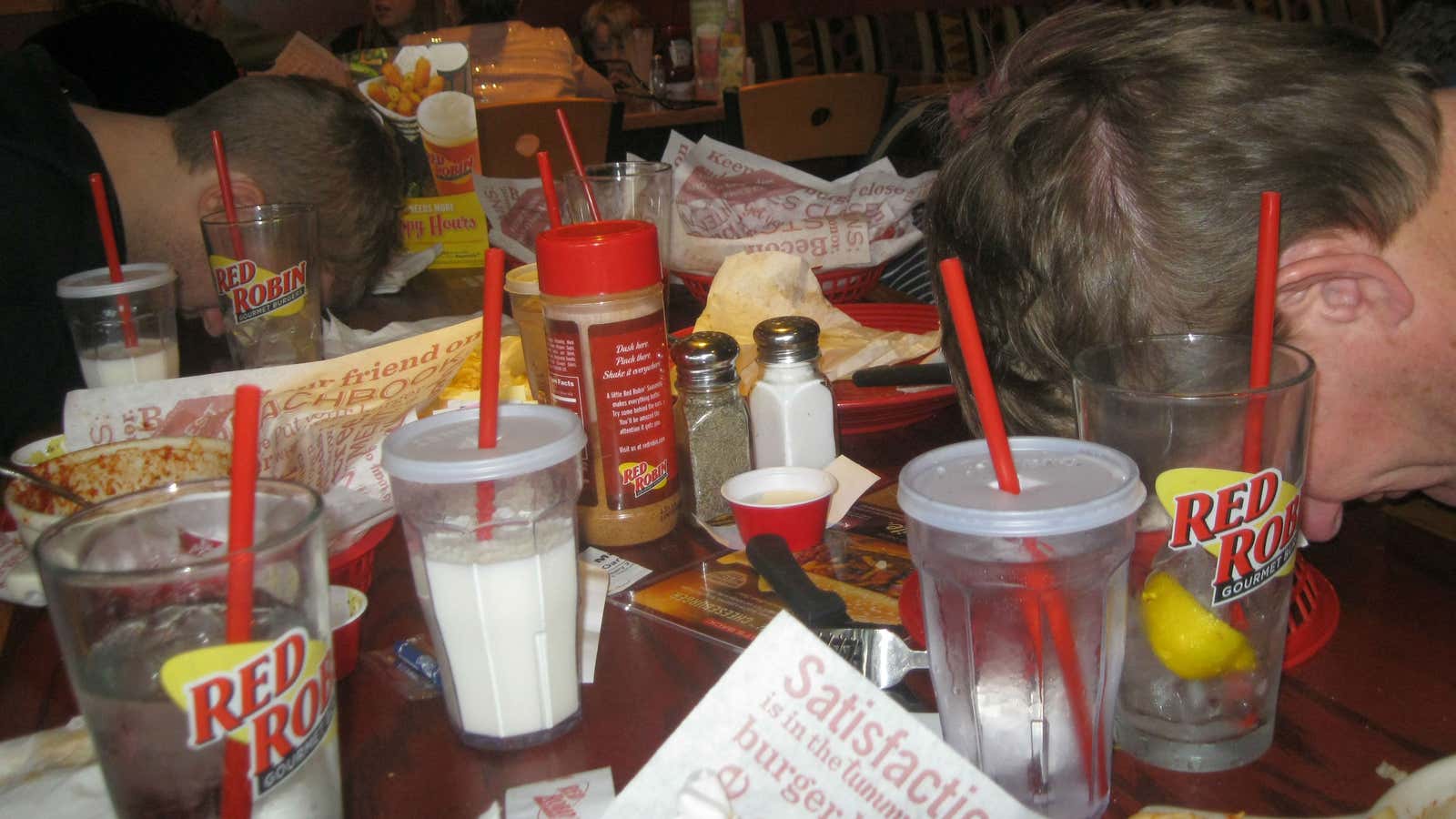There is nothing I love more than a BBQ bacon cheeseburger. Except, maybe, pizza. And tacos, Korean BBQ, meatball subs, chocolate cake, and milkshakes.
When I choose to indulge, though, I try to plan extra time for the meal. Not because I eat slowly to savor the meal, but because I know I’ll need a nap afterward.
Food comas, the sleepy feeling you get after eating a big meal, are so common that the term was added to the Oxford dictionary in 2014. Among the scientific community, it’s called postprandial somnolence (pull that one out at your next Thanksgiving dinner). It seems that researchers, like the rest of us, have also been intrigued as to why our lids become so heavy after a meal.
At its core, a food coma probably comes down to the composition of what we eat, and not necessarily the quantity. Our bodies are really good at breaking down simple carbohydrates—like white bread, bagels, or pasta—into sugars our cells use for energy. These foods have a high glycemic index, which means that they quickly increase the amount of sugar in our blood. When we eat a lot of these foods, we get us a boost of energy but it takes our pancreas some time, around an hour or so, to catch up and produce insulin. Insulin shuttles the sugar out of our bloodstreams into our cells, but it also allows a chemical called tryptophan to reach our brains, which causes us to produce another chemical serotonin—both of which tend to make us sleepy.
Tryptophan occurs naturally in a number of different foods, including Thanksgiving turkey, but probably not in high enough concentrations to make us sleepy, Lisa Young, a nutritionist, told Motherboard. The reason you feel so sleepy after a holiday meal, she said, is more likely to do with the spike in blood sugar and insulin rush.
The best way to avoid a food coma is to not flood your bloodstream with extra sugar by eating more moderately sized portions or foods with a lower glycemic index. Try eating more complex carbohydrates with fiber like whole wheats, fruits, and vegetables. Proteins can also help keep your blood sugar at a stable level. And if you’re worried you may quickly become sleepy after a meal, exercise can help transport excess blood sugar to our muscles, as Cornelia Weyand, a rheumatologist and immunologist at Stanford University, told Quartz earlier this year.
